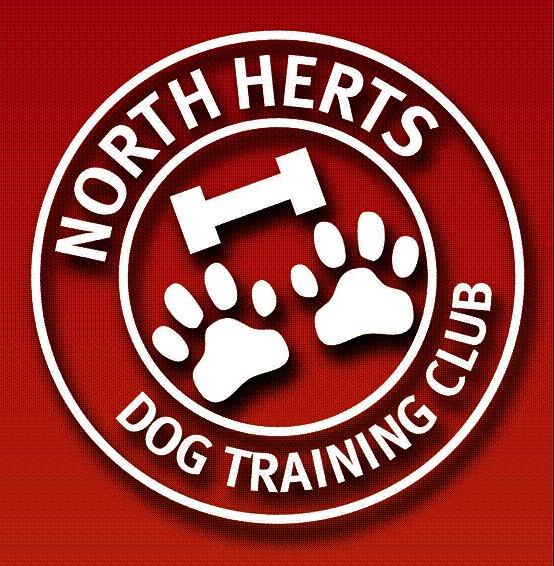Welcome to North Herts Dog Training Club
This fact information is designed to give you the best possible start to living with and training your dog.
Dogs are pack animals. They live so well with us in our family units because they equate this to the ‘pack’. The most successful packs in the wild are those where there are clear rules, boundaries and constraints; every dog knows its place and what it can and can’t do. Their survival depends upon clear rules and consistency – and knowing who the top dogs are. This in itself offers the dog a sense of security.
So to give your dog the best possible start within your ‘pack’, you need to clearly establish rules and boundaries. Without these, your dog begins to display unwanted behaviours such as play biting, jumping up uninvited, stealing and behaving like a ‘wild child’! Often we try to fix the actual problem but the underlying causes remain the same and the behaviour never really disappears.
Here is a list of suggested rules to help you avoid or resolve problems – these apply equally to big and small dogs. These rules also generally apply to rescue dogs but do check with the rescue centre or the dog trainers. Without rules and boundaries, your success in training your dog will be limited and you will not experience the true joy of a well-adjusted, well-mannered dog, of which you can be justifiably proud.
It can take at least 2 years to train your dog so please be patient and keep the rules up. These rules may seem “odd” by human standards but they will make perfect sense to the dog.
Tips for establishing the “pack” hierarchy
- When returning home, ignore your dog (no looking, touching or talking) for set period of time (as advised by your trainer) before greeting. This displays leadership behaviour and reduces over-excitement at your return.
- Restrict the dog’s area when he is left alone. It may be useful to crate train your dog. Speak to one of your instructors if you would like more information.
- Do not allow the dog on furniture.
- Keep some areas of your house as “out of bounds” to your dog. Ideally this should be the bedroom as in the wild the “top dogs” sleep in separate and reserved area.
- Ensure the dog moves out of your way when required
- Avoid playing rough or ‘fighting’ or tug of war games with your dog. If you want to know more about this please ask one of the trainers.
If you experience problems in successfully instigating your rules or do not understand why any of the above are suggested please ask your trainer who will be happy to help.
During the classes we will show you different techniques for training your dog - but the following are basic rules that apply across all different types of training and across all the different classes.
- Training with praise, food and reward will be more effective than training with punishment.
- Training should be fun – it will be more enjoyable for you both if you enjoy yourself.
- Keep training sessions short – you will get more out of 3 x 5 minutes of training than one 30-minute training session.
- Only train when you and the dog are in a good mood.
- Always end on a good note. If the exercise you tried was not working then go back to an earlier exercise that you know you both can do.
- All training is good – as well as obedience you could try teaching your dog tricks.
General
Please make sure that your dog is less likely to mess in the hall by ensuring that they relive themselves before the class.
Do not bring your bitch when she is in season.
Do not bring your dog when they have any contagious disease – such as kennel cough, mange, or upset stomach and if your dog has had a recent operation or injury please tell your trainer.
Please make sure you are up to date on inoculations – we may need to see evidence when you renew your membership.
Please be “dog aware”. Do not approach or allow your dog to approach other people’s dogs without their permission. If your dog is likely to show aggression to another please pay particular attention to issues such as “eyeballing”.
When waiting for your class to start at the back of the hall please make sure that your dog is quiet.
When leaving or arriving the car park please be considerate to the neighbours. Keep noise (dog and human to a minimum.
Tips for Training
- Do not allow the dog to jump up uninvited.
- Do not allow your dog to play fight or play bite with other dogs. They are learning to fight and bite!
- Do not feed the dog from the table or plates.
- Make sure that you eat before the dog. This could be a biscuit or a full meal but make sure that the dog sees that the “higher” pack animals (i.e. the humans) are eating first.
- All food and tidbits should be worked for, e.g. ask your dog to sit before dinner or treat.
- Do not constantly respond to the dog’s demands for attention, they will be better-adjusted dogs if they learn to settle and relax by themselves.
